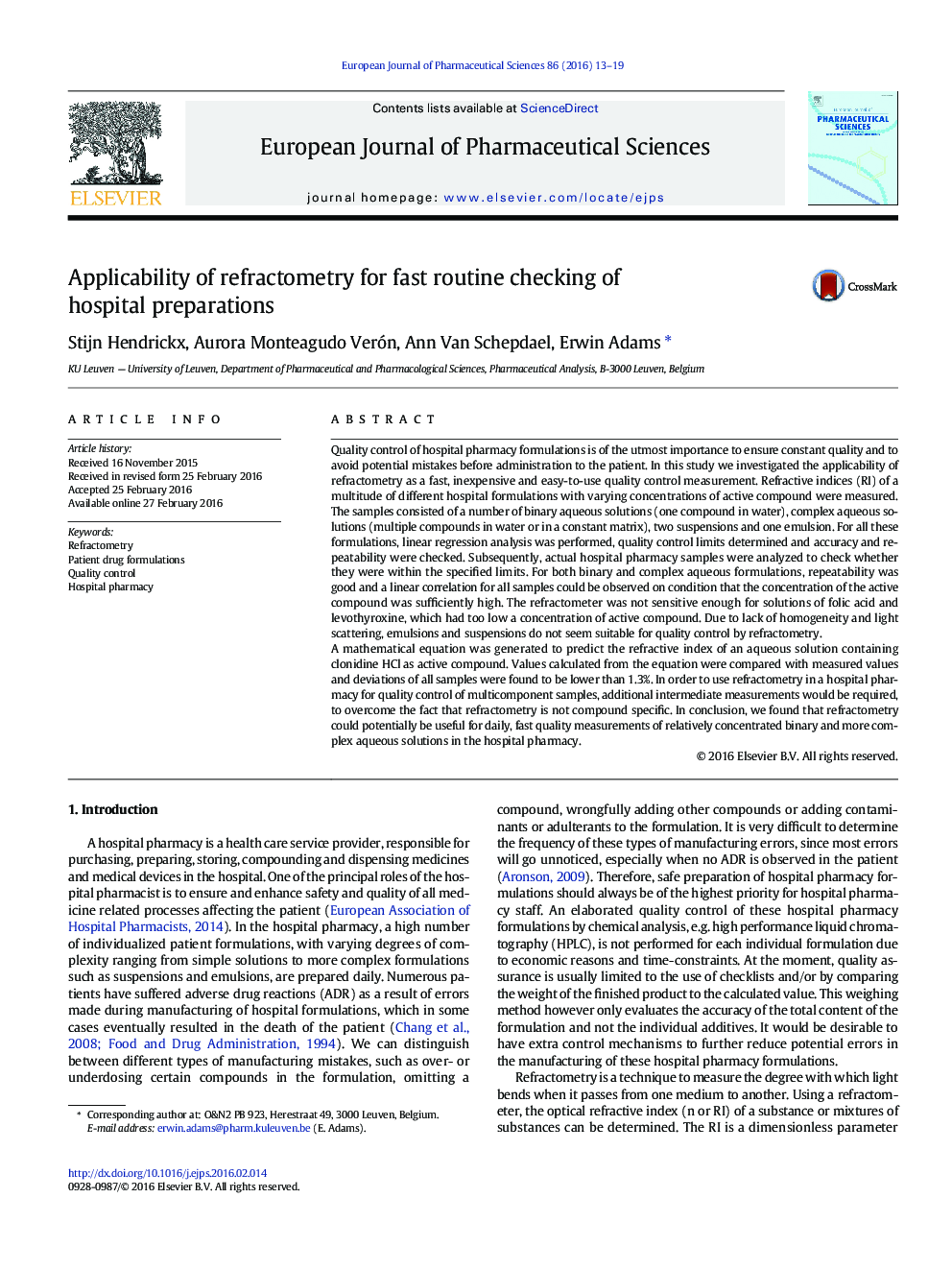| Article ID | Journal | Published Year | Pages | File Type |
|---|---|---|---|---|
| 2480058 | European Journal of Pharmaceutical Sciences | 2016 | 7 Pages |
Quality control of hospital pharmacy formulations is of the utmost importance to ensure constant quality and to avoid potential mistakes before administration to the patient. In this study we investigated the applicability of refractometry as a fast, inexpensive and easy-to-use quality control measurement. Refractive indices (RI) of a multitude of different hospital formulations with varying concentrations of active compound were measured. The samples consisted of a number of binary aqueous solutions (one compound in water), complex aqueous solutions (multiple compounds in water or in a constant matrix), two suspensions and one emulsion. For all these formulations, linear regression analysis was performed, quality control limits determined and accuracy and repeatability were checked. Subsequently, actual hospital pharmacy samples were analyzed to check whether they were within the specified limits. For both binary and complex aqueous formulations, repeatability was good and a linear correlation for all samples could be observed on condition that the concentration of the active compound was sufficiently high. The refractometer was not sensitive enough for solutions of folic acid and levothyroxine, which had too low a concentration of active compound. Due to lack of homogeneity and light scattering, emulsions and suspensions do not seem suitable for quality control by refractometry.A mathematical equation was generated to predict the refractive index of an aqueous solution containing clonidine HCl as active compound. Values calculated from the equation were compared with measured values and deviations of all samples were found to be lower than 1.3%. In order to use refractometry in a hospital pharmacy for quality control of multicomponent samples, additional intermediate measurements would be required, to overcome the fact that refractometry is not compound specific. In conclusion, we found that refractometry could potentially be useful for daily, fast quality measurements of relatively concentrated binary and more complex aqueous solutions in the hospital pharmacy.
Graphical abstractFigure optionsDownload full-size imageDownload high-quality image (182 K)Download as PowerPoint slide
